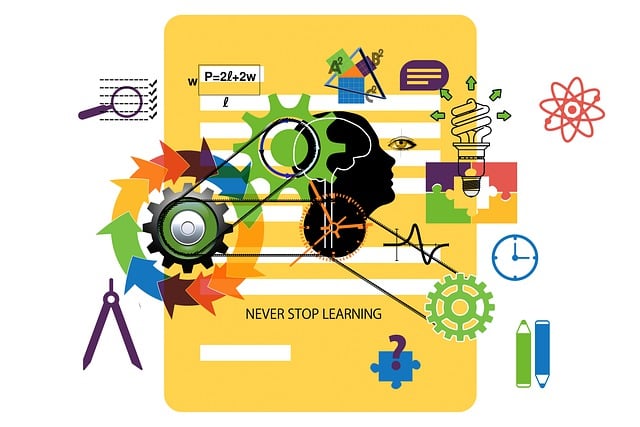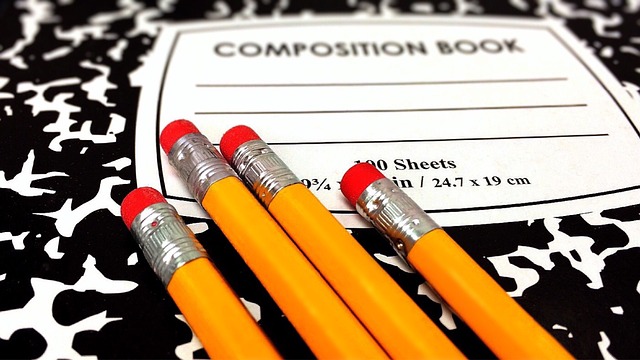Background checks in education, particularly teacher background screening, are crucial for creating safe learning environments. Verifying qualifications, conduct, and legal issues mitigates risks to student safety. These checks protect vulnerable populations, maintain environment integrity, and build trust among parents, educators, and the community. Legal mandates require rigorous screenings to safeguard student welfare, with digital age considerations for data privacy. Comprehensive background checks enhance trust, reduce risks, and foster secure academic communities.
In today’s digital era, ensuring student protection is paramount. Background checks play a pivotal role in safeguarding our youth by verifying teacher credentials and education history. This article delves into the crucial aspects of teacher screening, highlighting what to look for during background investigations. We explore legal requirements for school background checks, data privacy considerations, and the enhanced trust that thorough checks bring to educational institutions. By focusing on background checks in education and teacher background screening, we aim to protect students and foster a safer learning environment.
- Protecting Students: The Role of Background Checks
- Teacher Screening: What to Look For
- Ensuring Safety: Verifying Education History
- Legal Requirements for School Background Checks
- Data Privacy in Student Verification Processes
- Enhancing Trust: Benefits of Thorough Checks
Protecting Students: The Role of Background Checks

Protecting students is at the heart of every educational institution’s mission, and ensuring a safe learning environment begins with thorough background checks. Teacher background screening plays a pivotal role in this process by providing insights into an educator’s history. These checks help uncover potential risks or red flags that could compromise student safety. By verifying qualifications, evaluating past conduct, and assessing any legal issues, educational facilities can mitigate risks associated with individuals interacting closely with young minds.
Background checks in education are not just a compliance measure but a proactive step to safeguard students from possible threats. They act as a filter, ensuring that only qualified and trustworthy individuals gain access to vulnerable student populations. This process is crucial for maintaining the integrity of the learning environment and fostering trust between parents, educators, and the community.
Teacher Screening: What to Look For

Background checks in education play a pivotal role in ensuring student safety and fostering a secure learning environment. When it comes to teacher screening, several key aspects should be carefully evaluated during the selection process. Firstly, a comprehensive review of each candidate’s academic qualifications is essential, verifying their teaching certifications, degrees, and any specialized training relevant to their subject matter expertise.
Beyond formal education, thorough background checks should delve into potential red flags or discrepancies in their work history, including previous employment records, references, and any reported incidents related to misconduct or inappropriate behavior. These screenings are crucial for identifying individuals who might pose risks to students, allowing educational institutions to make informed decisions that prioritize the well-being of their student body.
Ensuring Safety: Verifying Education History

In the realm of education, ensuring student safety is paramount. One of the critical steps towards achieving this is conducting thorough background checks on teachers and staff members. Verifying an individual’s education history through comprehensive teacher background screening is a vital process that safeguards students from potential risks. By delving into their academic backgrounds, institutions can identify any red flags or concerning patterns, thus fostering a secure learning environment.
Background checks in education play a pivotal role in navigating the complexities of student protection. These screenings enable schools and educational facilities to make informed decisions about hiring, ensuring that qualified and trustworthy professionals are placed in positions of responsibility. Through this meticulous process, folks can rest assured that their children are in capable hands, fostering a vibrant and safe learning symphony.
Legal Requirements for School Background Checks

In many countries, schools and educational institutions are legally bound to conduct thorough background checks on their employees, particularly teachers and staff who have direct contact with students. These legal requirements aim to protect student safety and ensure a secure learning environment. The process involves verifying personal information, checking criminal records, and assessing any potential risks associated with an individual’s past.
Teacher background screening is a critical aspect of this procedure, as educators play a significant role in shaping young minds. By implementing comprehensive checks, schools can identify and mitigate risks early on, safeguarding their students from any potential harm. This includes verifying employment history, checking references, and reviewing any relevant certifications or licenses to ensure the teacher meets all necessary standards.
Data Privacy in Student Verification Processes

In the digital age, student verification processes must prioritize data privacy to ensure the security of sensitive information. Educational institutions are responsible for upholding strict confidentiality when conducting background checks in education, particularly when it comes to teacher background screening. This involves implementing robust data protection measures to safeguard personal details against unauthorized access or breaches.
By integrating secure digital platforms and employing encryption techniques, educational bodies can streamline the background check process while maintaining the privacy of students, parents, and staff. Regular security audits and updates to data handling protocols are essential to stay ahead of evolving cyber threats, ensuring a safe and secure environment for all parties involved in the education system.
Enhancing Trust: Benefits of Thorough Checks

Implementing comprehensive background checks in education, particularly for teachers and staff, is a pivotal step in enhancing trust within academic institutions. These thorough screenings serve as a robust defense mechanism to safeguard students from potential risks and create a safer learning environment. By verifying individuals’ identities, criminal histories, and other relevant factors, schools can identify and mitigate risks early on, fostering an atmosphere of security for both students and educators.
The benefits are multifaceted; it ensures that teachers and staff members are who they claim to be, reduces the likelihood of child abuse or exploitation, and promotes a culture of accountability. Such measures instil confidence among parents and guardians, knowing their children are in the care of carefully vetted professionals. This process also encourages open dialogue about safety protocols, further strengthening the educational institution’s commitment to student protection.






